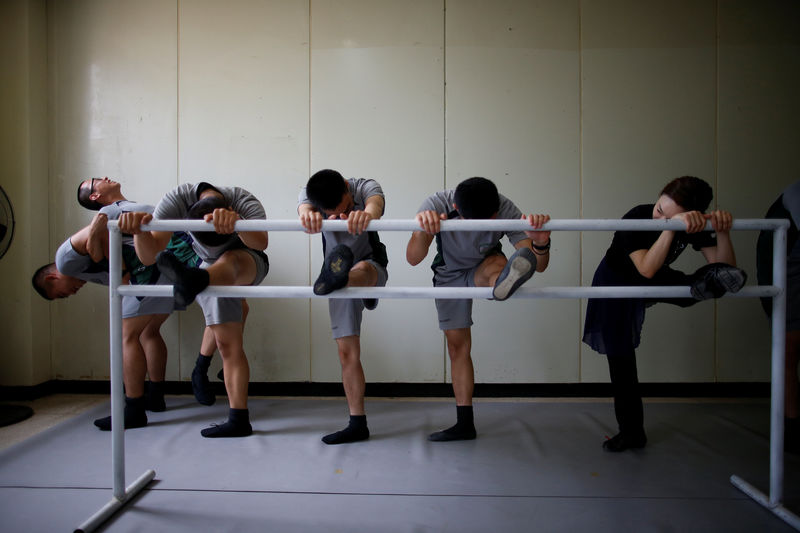By Nataly Pak and Minwoo Park
PAJU, South Korea (Reuters) - The 15 male ballet students groaned as they strained to do the splits and laughed with relief after their teacher counted to five and let them relax.
Once a week, a group of South Korean soldiers near the Demilitarised Zone (DMZ) that divides the Korean peninsula trade army boots for ballet shoes in a class intended to ease the stress of guarding the world's most heavily fortified border.
"There's a lot of tension here since we live in the unit on the front line, which makes me feel insecure at times," said Kim Joo-hyeok, a 23-year-old sergeant doing his nearly two years of military service that is mandatory for South Korean men.
"But through ballet, I am able to stay calm and find balance as well as build friendships with my fellow soldiers," said Kim, who is learning ballet for a second year and plans to continue when he is discharged from the army.
Wearing shorts and T-shirts along with their dancing slippers, members of the army's 25th Division are taught each week by a ballerina from the Korean National Ballet under a programme that began last year and has already included a performance of Tchaikovsky's Swan Lake.
Most of the students at a recent session were first-timers.
"Being in the army itself can be difficult, so I wasn't sure what kind of help I can be here," said Lee Hyang-jo, a ballerina at the Korean National Ballet who visits the base once a week to train the soldiers.
"But as the soldiers learn ballet little by little, they laugh more and have a great time and seeing that makes me think that coming here is worthwhile," she said.
As the suntanned, crew-cut dancers practiced movements including the splay-kneed plie to classical music, outside the studio, another group of soldiers played soccer.
But ballet toughens you up too, said Lieutenant Colonel Heo Tae-sun.

"Ballet requires a great amount of physical strength and is very good for strengthening muscle, increasing flexibility, and correcting posture," Heo said.